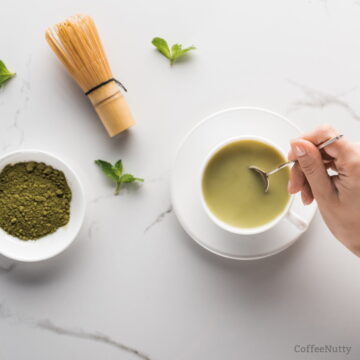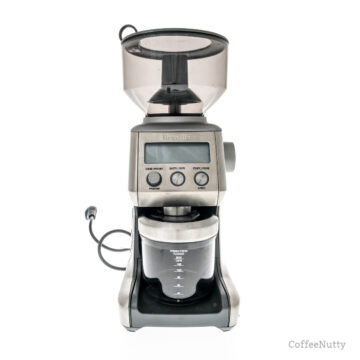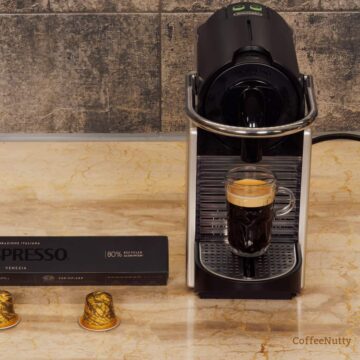Coffee is one of the world's most popular beverages. More than a billion cups are consumed every day, and instant coffee is one of the most common ways to enjoy it. But what's the difference between instant coffee and ground coffee?
| Differences | Instant Coffee | Ground Coffee |
| Brewing Method | No special equipment required | Requires a coffee maker |
| Processing | More processed, roasted, ground, brewed, and moisture removed | Less processed, only roasted and ground |
| Shelf Life | 2-20 years | 2 years unopened, 1 month opened |
| Health Concerns | Contains more acrylamide which is linked to cancer | None |
| Amount of Caffeine | Less caffeine | More caffeine |
| Cost | Less expensive | More expensive |
If you aren't sure which kind of coffee choose: instant or ground, keep reading. In this blog post, we will take an in-depth look at all the differences between instant and ground coffee so that you know which one works best for your needs.
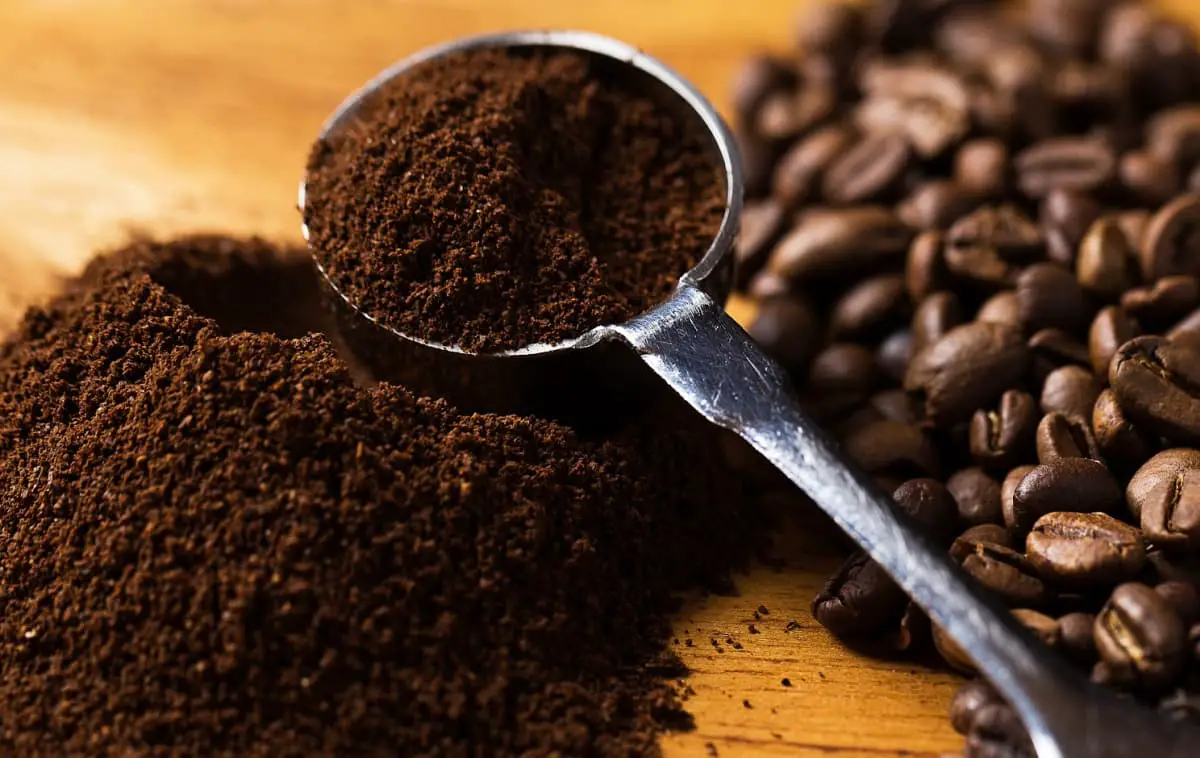
Instant Coffee and Ground Coffee Are Brewed Differently
To make ground coffee, you'll need a coffee maker. There are many different types of coffee makers, including:
- Drip Coffee Maker
- French Press
- Single-Serve Brewed Coffee Makers
- Pour Over Coffee Maker
- Espresso Machine
On top of the coffee machine itself, you'll also probably need a filter, either disposable or reusable, except for with a French press, which doesn't use one.
To make instant coffee, all you need is a cup of hot water and something to drink the coffee from. Mix and enjoy! A main reason many enjoy instant coffee is due to its convenience. For this reason, instant coffee is often used when convenience is key, like camping or traveling.
Instant Coffee and Ground Coffee Are Processed Differently
Instant coffee is actually made from ground coffee. It's what happens after the grinding that makes it different. Let's take a closer look at how each type of coffee is processed.
Ground Coffee Processing
Ground coffee is made of coffee beans harvested from the coffee tree, still in the “cherry” they are encased in. The coffee beans must then be:
- Separated from the cherry - Drying the fruit in the sun or using water to loosen and extract the bean from the pulp.
- Hulled – Removing the thin, paper-like coating on the bean. Some producers will polish the bean afterward.
- Graded and sorted – Defective beans are removed, and quality beans move to the next step.
- Roasted – Beans arrive at the roaster green and are toasted at over 500 degrees until they reach the light or dark brown color desired.
- Ground – The beans are then ground to be user-ready to brew into coffee.
Then the ground coffee is bagged before being shipped to grocery stores.
Instant Coffee Processing
Instant coffee must go through all of the steps above, but its manufacturing process goes several steps further.
Instant coffee is made by brewing up ground coffee and then removing all moisture from the brewed coffee. The resulting powder is what you dissolve in water to make a cup of instant coffee.
There are two methods used to remove moisture when making instant coffee granules, the spray drying method and freeze drying:
- Spray Drying. Spray-dried instant coffee granules are the most common type of instant coffee. They are made by spraying the coffee with hot air. The droplets created during the spraying drying method cool rapidly and become a fine powder before hitting the ground.
- Freeze-drying. Freeze-dried instant coffee is made using cold temperatures, usually around -40 degrees Fahrenheit, to remove moisture. The freeze-drying method is thought to produce a higher quality instant coffee because it preserved aroma.
RELATED: Instant Coffee Substitutes
Microground Instant Coffee
Several specialty coffee producers, including Starbucks, use a combination of freeze-drying and “micro” ground coffee to create a signature version of instant coffee. The ground coffee, in this case, is ground so finely that it can dissolve in water. This mix of soluble coffee crystals and fresh-ground coffee is thought to elevate the taste of instant that much closer to a drip coffee.
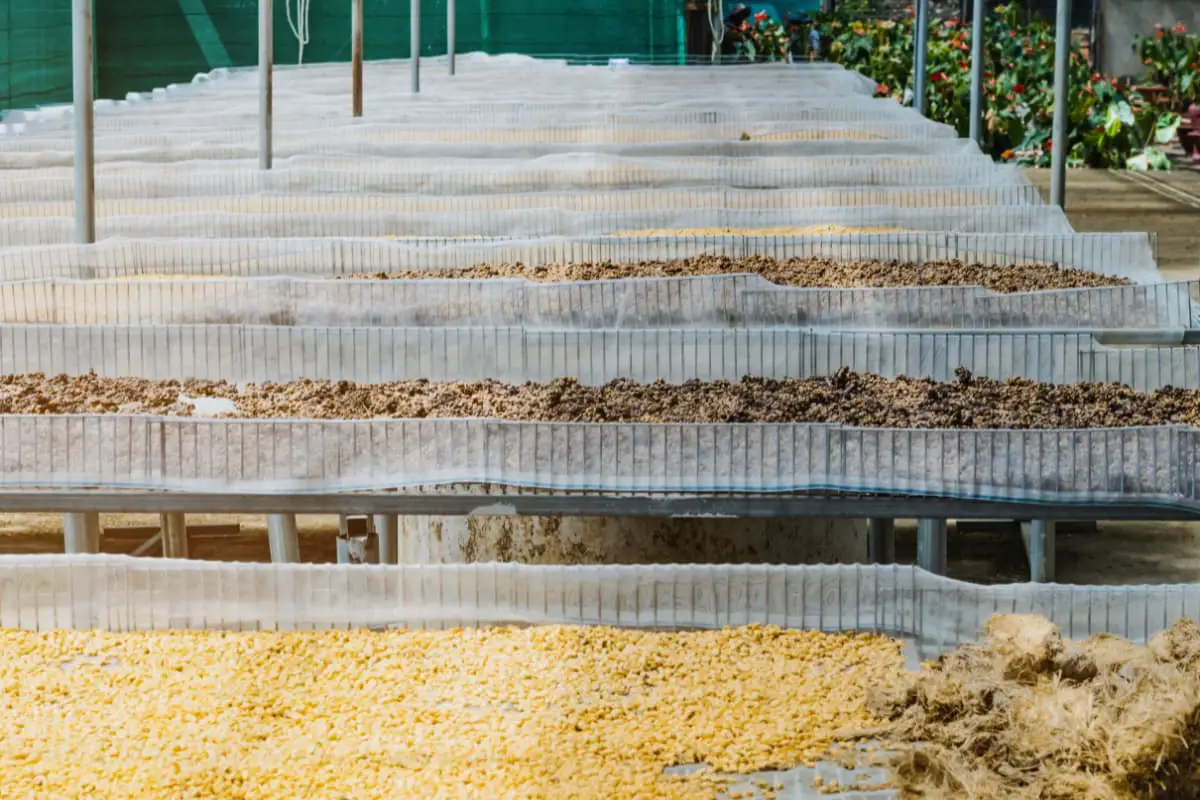
Which Has a Longer Shelf Life – Instant Coffee or Ground?
The long shelf life that instant coffee boasts is one area where it shines over ground coffee and one of the reasons why you find it in many homes around the world.
Instant coffee can last 2 to 20 years sitting in the pantry. This is even if the jar has been opened. Because instant coffee is dehydrated, it can stay “fresh” as long as it doesn’t encounter moisture. Ground coffee, on the other hand, needs to be used up within a month of opening, as it loses its freshness quickly once opened.
Unopened ground coffee should be used by its expiration date, which is usually within a year or two of purchase. Because of this, many people who only drink coffee occasionally may keep instant coffee in the cupboard for when the mood strikes or for when guests stop by so to better enjoy the fresh coffee experience.
Instant Coffee and Brewed Coffee Have Different Flavors
When it comes down to it, how your coffee tastes is what's most important, right? No one wants to drink a nasty cup of coffee. So how does instant coffee hold up?
If you're a coffee aficionado, chances are instant coffee isn't going to do it for you. Coffee enthusiasts who are used to drinking coffee made fresh from ground whole coffee beans don't enjoy instant coffee. However, instant coffee is wildly popular around the world for a reason. Some people do enjoy the flavor of instant coffee and there are a good variety of instant coffee brands to choose from.
Drip Coffee vs. Instant: How Their Tastes Compare in the Cup
Here are some of the general characteristics of coffee produced through the drip method compared to the instant method:
| Drip Coffee | Instant Coffee | |
| “Strength” of Flavor | Bold or strong | Mellow or smooth |
| Bitterness | Mild | Pronounced |
| Roast | Nutty | Burnt |
| Flavor profile | Complex and well-rounded | Plain or flat |
You can see that most of the more desirable adjectives are in the drip coffee column. That’s not a coincidence: the coffee produced by brewing coffee grounds just tastes better to most coffee lovers.
What Are the Best Tasting Instant Coffees?
Sometimes instant coffee gets a bad rap because there are some truly unpalatable versions of it out there, but not all instant coffee is created equal. Like low-quality ground coffee, low-quality instant coffee does not taste good.
Some of the best tasting instant coffees we've tried are:
- Café Bustelo – If you are a fan of this lush, chocolatey ground coffee, the instant version won’t let you down.
- Starbuck Via - One of the first “microground” coffees, Starbucks Via is complex and well-rounded.
- Mount Hagen – This fair-trade, organic instant coffee has depth of flavor and aroma and a low carbon footprint.
Nescafe is a long-time favorite among avid instant coffee drinkers, but it doesn't compare to our top three.
Ground Coffee is a Little Healthier Than Instant Coffee
Instant coffee and ground coffee are nearly identical in terms of health benefits and health drawbacks. The main difference is that instant coffee contains more acrylamide than regular coffee. Consuming too much acrylamide is linked to cancer as well as nervous system damage.
However, both types of coffee promote health by:
- Improving cognitive functions
- Reducing the risk of Alzheimer's Disease and Parkinson's disease
- Boosting your mental health and mental alertness
- Decreasing your risk of diabetes
Occasional consumption of instant coffee isn't likely to be harmful to your health while still providing many health benefits.
Instant Coffee has a Little Less Caffeine
Caffeine intake can be a factor to consider. Instant coffee does indeed have less caffeine than coffee made fresh from ground beans.
- Instant coffee typically contains 30 to 90 mg of caffeine per serving.
- A drip-brewed cup of coffee made with ground coffee has about 70 to 140 milligrams, so a higher caffeine content.
Exactly how much caffeine is in your cup of coffee depends on the brand you purchase and how strong you like your coffee. If you want more of a caffeine kick, you can always make instant coffee stronger by adding more grounds and/or less water.
Instant Coffee Can Be Whipped
Arguably one of the coolest things about instant coffee is that you can make a whipped cream-like substance with it. There's some pretty cool science behind how this works, and it only works with instant coffee. Here's how to do it:
- Add equal parts instant coffee, water, and sugar to a bowl. If you want to ease up on the sugar, this recipe works well with half the amount of sugar.
- Mix with a hand mixer until the coffee becomes light and fluffy.
You can use this coffee whip however you want, but most people either mix it into a cup of warm or cold milk to create a frothy coffee drink. Alternatively, you can put it into a cup and pour the milk on top, which helps it mix in a little easier.
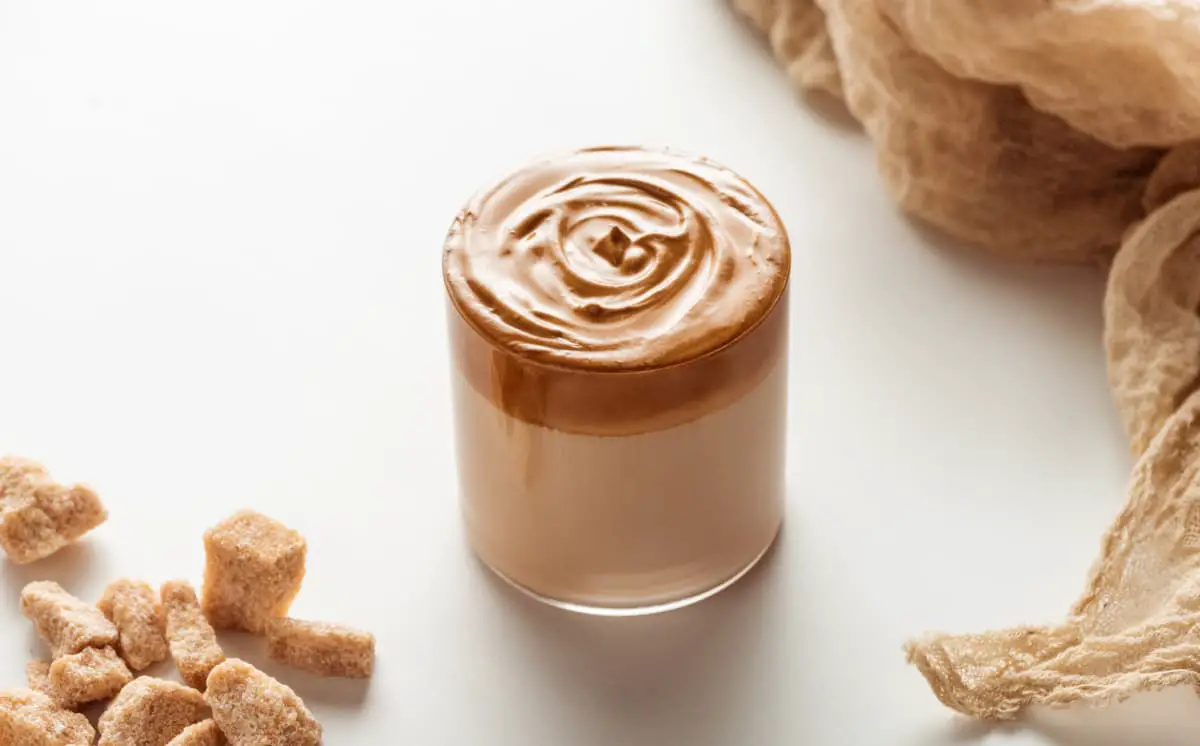
What Costs More Per Cup to Brew: Instant or Ground Coffee?
Instant coffee is less expensive than ground coffee of the same brand. On average, ground coffee can brew a cup for about 20 cents, depending on the brand, while instant coffee can be made for 10 cents or less. However, instant coffee’s weaker flavor and lower caffeine content make it necessary to use more instant coffee to compare to a fresh-brewed cup.
Ounce for ounce and cup for cup, instant coffee costs less. Even adjusting for the fact that you need to use more instant coffee for the same caffeine fix and the same robust flavor, most instant coffee is still cheaper per cup than a comparable brand of ground coffee. Of course, the more “specialty” the brand of instant or ground coffee, the price will creep up.
In general, if you're trying to cut back on expenses, then instant coffee is the way to go.
Both are MUCH cheaper than coffee at your nearest coffee shop!
Can You Substitute Ground Coffee for Instant Coffee in a Recipe?
While fresh ground coffee can be used as a substitute for instant coffee in a recipe, it isn't ideal because ground coffee will not dissolve into the recipe and may alter the texture of the finished product. The amount of ground coffee substituted for instant will also require adjustment.
When substituting ground coffee for instant coffee, there are two important things to keep in mind.
- Use about half as much ground coffee as instant. Ground coffee has a stronger flavor than instant.
- Select a coffee that is finely ground. If you've only got your normal ground coffee in the cabinet, it probably is too coarse to use, and the texture of what you're making will be crunchier and grittier than normal.
Using ground coffee instead of instant isn't without its risks, however. Ground coffee won't dissolve in batter, and even a fine grind can have a gritty texture that isn't appealing in most recipes. However, if the recipe calls for coffee liquid, you can use coffee brewed just about any way.
Which Is the Best Option: Instant Coffee vs. Ground Coffee
Instant coffee and ground coffee are both great options. If you only drink coffee occasionally, instant coffee is a clear winner. It gives you a light caffeine boost and can sit in your pantry for years unharmed.
If you drink more cups of coffee on a regular basis, you might choose ground coffee because it contains less amount of acrylamide, therefore, a slightly healthier option.
But at the end of the day, it's the flavor of the coffee that matters, and whichever flavor you prefer is going to be the type of coffee you choose. Because everyone loves a fresh cup of coffee no matter how much coffee you drink.
RELATED READING:
How to Grind Coffee Beans for the Perfect Cup of Coffee
Why Your Instant Coffee is Hard (and What to Do!)
Is It OK to Put Instant Coffee in a Coffee Machine?

